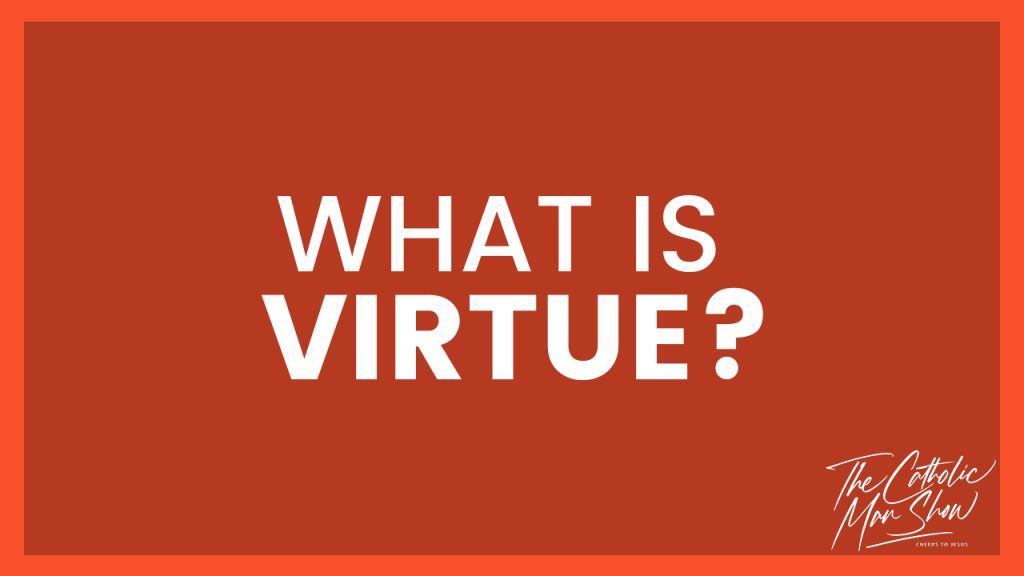What is Virtue?

What is Virtue?
We all pursue some excellence, whether bodily, intellectual, or moral. Or, if we succumb to the
complacency and lethargy so characteristic of our age, we at least recognize these excellences in
others. Consider the professional baseball player. One who has achieved excellence in baseball
hits the ball well, runs quickly and efficiently, and coordinates with his teammates to ensure that
the opposing team does not score. But do we honor the player who does these things
sporadically, on occasional, or do we honor the one who does them consistently, habitually?
Clearly the latter! The excellent player hits well nearly every time, throws well more often than
not, runs the bases with precision and agility such that his teammates can rely on him to do so
every game.
The Moral Life
It is likewise in the moral life. The truly good man does not do the good or act well on occasion
but all the time. Consider the honest man. He is honest in every situation, in every season; the
honest person can be counted on to speak truthfully of himself and others. We say that such a
man is virtuous, that he has the virtue of honesty. This is what we mean when we speak of virtue.
Sure, things can and do get complicated when we get into the moral weeds. But at root virtue is
something simple: a good (operative) habit. That is how St. Thomas Aquinas, drawing from the
tradition, defines virtue. We all know what a habit is, even if the kinds of habits relevant to the
moral life are only similar in kind to those found in the excellent baseball player. Habits are
stable dispositions to act in a certain way. So virtue is a stable disposition to act in a good way, in
a way befitting human nature. St. Thomas, following St. Augustine, also offers this definition:
virtue is a good quality of the mind by which we live righteously. For St. Thomas, virtues are
either moral, perfective of man’s appetitive powers, or intellectual, perfective of man’s intellect.
Because we are examining virtue from a Christian perspective, we can also speak of virtue as
acquired or as infused by God. But more on that later.
Let’s return to the honest man. What is his relationship to the truth? Between such a man and the
truth there is the strongest kinship, the tightest bond. Telling the truth for him is as natural and
effortless as breathing. This insight allows us to fill out the definition of virtue a bit more by
getting at the nature of habits. Habits make performing a particular kind of action easy, prompt,
and joyful. And thus telling the truth for the virtuous man comes easily; he does so at once; and
he actually enjoys or rejoices in telling the truth. People of this sort, speaking naturally, are hard
to come by. More often than not, we encounter people who, on balance, tell the truth more than
they lie. Such people Aristotle would call continent. We might also encounter the incontinent
man who is more dishonest than not, though he tells the truth on occasion. The truly virtuous
man, if we bracket for a second supernatural aid, is hard to come by.
If this account of virtue seems commonsensical, it is; if it seems to go against modern notions of
what the moral life consists in, it does. That is precisely what we need to talk about next time, the
significance of virtue in the moral life and how this account bumps up against modern notions.
Thereafter, we will explore specific virtues and see what relevance they might have for our lives
today.
By Dr. Aaron Henderson
Dr. Henderson graduated from Ave Maria University and is a theologian, husband, and father.

